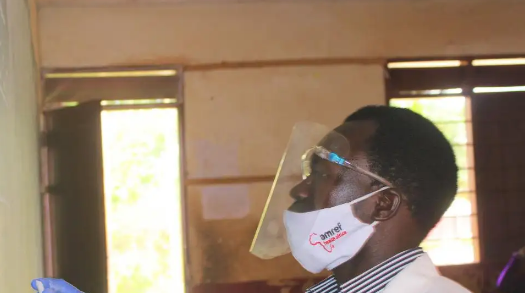The surging numbers of COVID-19 infections threaten the full reopening of schools and other educational institutions. Uganda has entered the second wave of COVID-19 infections. This coincides with the government’s plan to fully reopen schools and other educational institutions across the country.
Since October last year, schools have been reopening in a staggered manner with a few learners to allow for physical distancing and implementation of the Standard Operating Procedures-SOPs to avoid COVID-19 infection. According to the revised school calendar, the Ministry of Education and Sports had projected that schools at all levels will reopen for all learners in the new academic year scheduled to start on August 9 this year.
However, Dr. Monica Musenero, the Presidential Advisor on Epidemics, says that with the increasing number of COVID-19 cases that have not spared young people, the last thing being considered is the full operationalization of educational institutions. “With the number of Covid19 cases with wards filling up, the last thing that should be considered now is the full reopening of schools. The level of complacency is high and we cannot take the risk,” says Dr. Musenero.
Dr. Musenero, who is also a member of the National COVID-19 task force, says that unless there is proof that schools will adhere to the set Standard Operating Procedures chances of full reopening are becoming slim. Although schools have tried to enforce the wearing of face masks and hand washing, most of them have been struggling with availing space even for the few learners who have been attending class in a staggered manner.
This makes it very difficult for schools to keep their normal enrollment and still maintain the social distancing. Besides the fear of infections among children, many teachers have also shunned the Covid-19 vaccination, which is one of the means that the ministry thought could limit transmission of the virus when schools fully reopen. However, available statistics indicate that by May 18, only 42,000 out of the targeted 550,000 teachers and non-teaching staff had been vaccinated.
Ismail Mulindwa, the Director of Basic Education who also doubles as the chairperson of the Covid-19 Education Response Committee is worried that the sector might get back on its knees. “We are praying that the worst doesn’t happen. We are still appealing to teachers to go for vaccination and tightening Standard Operating Procedures in our schools,” says Mulindwa. He, however, notes that the education ministry is still focused on implementing the school calendar as designed.
Last year, millions of children couldn’t attend classes due to the COVID-19 induced lockdown, which forced the government to close all educational institutions. The lockdown has wreaked havoc on the education sector and likely to worsen the already waning learning outcomes. URN








